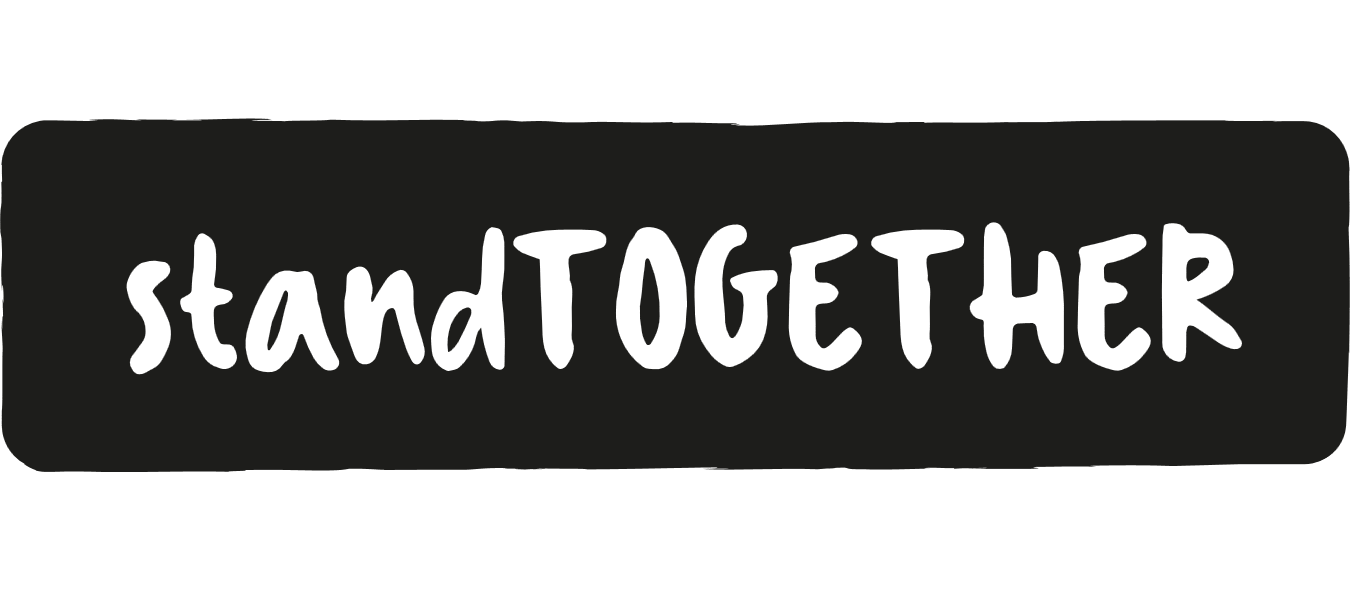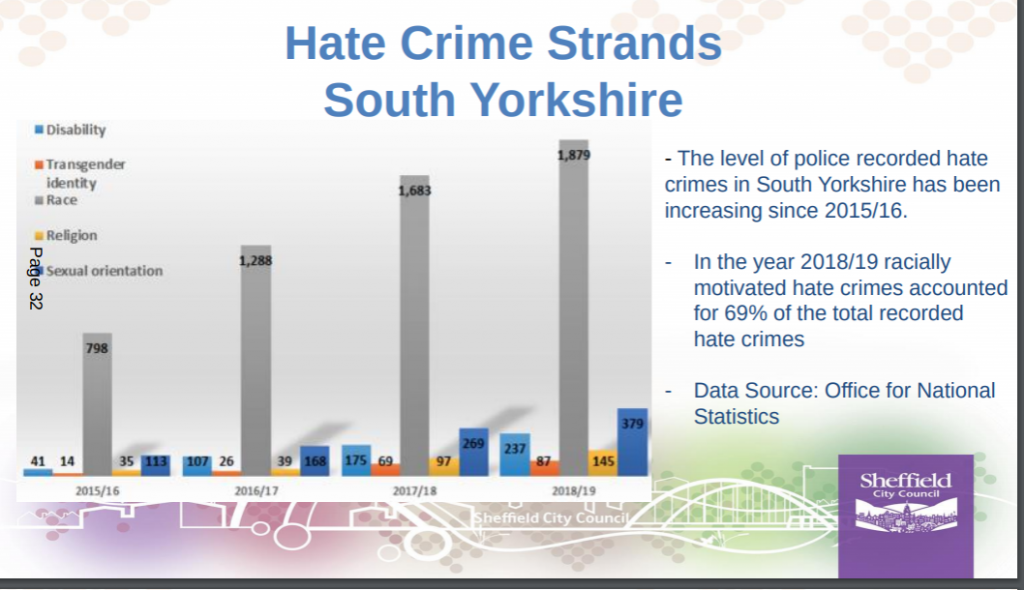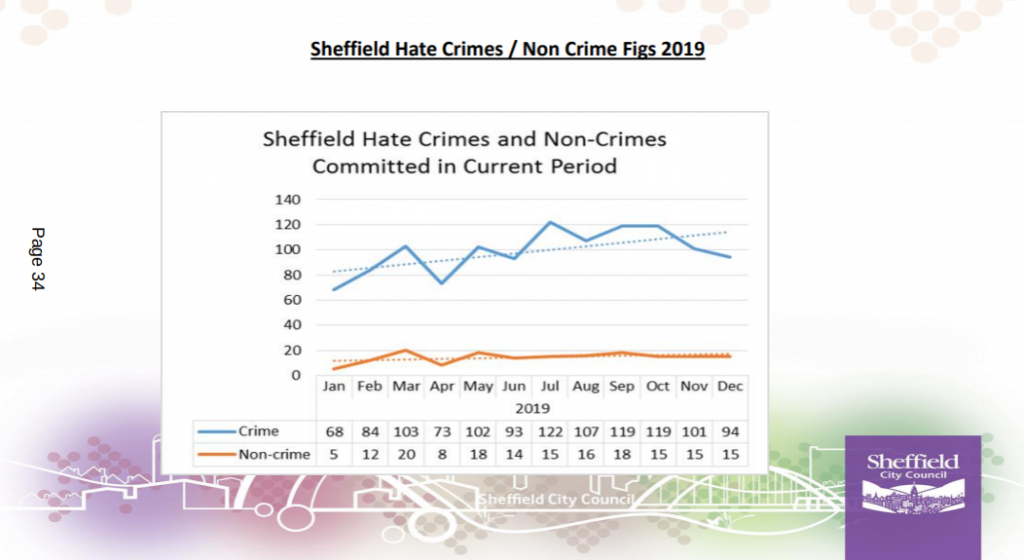ANOTHER RECORD YEAR FOR ANTISEMITIC INCIDENTS IN 2019
Antisemitic incidents rise to a record high for fourth year in a row
To read the CST Report please click here: IncidentsReport2019
“The Community Security Trust (CST), a charity that monitors antisemitism and provides security for the Jewish community in Britain, recorded 1,805 antisemitic hate incidents nationwide in 2019, the highest total that CST has ever recorded in a calendar year. This is the fourth year in a row in which CST has recorded a record total of antisemitic hate incidents, and is a seven per cent increase from the 1,690 antisemitic incidents recorded by CST in 2018. CST has recorded antisemitic incidents since 1984.
A further 566 reports of potential incidents were received by CST in 2019, but were not deemed to be antisemitic and are not included in this total of 1,805 antisemitic incidents. Many of these 566 potential incidents involved suspicious activity or possible hostile reconnaissance at Jewish locations; criminal activity affecting Jewish people and buildings; and anti-Israel activity that did not include antisemitic language, motivation or targeting.
For the second year in a row, CST recorded over 100 antisemitic incidents in every month of 2019. The highest monthly totals in 2019 were December (184 incidents) and February (182), two months that saw prominent and intense debate over allegations of antisemitism in the Labour Party. In total in 2019, CST recorded 224 antisemitic incidents in which the offender or offenders, or the abuse they expressed, were related to the Labour Party, or in which antisemitism was expressed in the context of arguments about alleged antisemitism in the Labour Party. This is an increase from the 148 incidents of this kind recorded by CST in 2018.
CST recorded 697 antisemitic incidents that occurred online in 2019, comprising 39 per cent of the overall total of 1,805 incidents and a rise of 82 per cent from the 384 online incidents in 2018. Most of these 697 online incidents took place on social media. This large increase in online antisemitism reported to CST is the most obvious single factor explaining why CST recorded an overall increase in antisemitic incidents in 2019. The totals of online incidents recorded by CST are only indicative and are likely to understate the scale of the problem: targeted campaigns directed at individual victims often involve dozens of social media accounts and hundreds or even thousands of tweets, images or posts, but each campaign of this type is recorded by CST as a single incident. Incidents involving social media are only recorded by CST if they have been reported to CST by either the victim or a witness; if the content shows evidence of antisemitic language, motivation or targeting; and if the offender is based in the United Kingdom or has directly targeted a UK-based victim.
As well as an increase in online incidents, CST recorded 158 violent antisemitic assaults in 2019, an increase of 25 per cent from the 126 incidents of this type recorded in 2018 and the highest number of violent incidents ever recorded by CST in a single year. Almost half of these 158 violent incidents were recorded in three boroughs: Barnet (29 assaults), Hackney (28) and Salford (15). There were 88 incidents of Damage & Desecration of Jewish property in 2019; 98 direct antisemitic threats; 1,443 incidents in the category of Abusive Behaviour, which includes verbal abuse, antisemitic graffiti, antisemitic abuse via social media and one-off cases of hate mail; and 18 incidents of mass-mailed antisemitic leaflets or emails.
Almost two thirds of the 1,805 antisemitic incidents were recorded in Greater London and Greater Manchester, the two largest Jewish communities in the UK. CST recorded 947 antisemitic incidents in Greater London in 2019, three fewer than the 950 incidents recorded in London in 2018. CST recorded a fall of 11 per cent in antisemitic incidents in Greater Manchester, from 251 incidents in 2018 to 223 incidents in 2019. In total, 327 antisemitic incidents, or 18 per cent of the overall national total, were recorded by CST in the London borough of Barnet, which has the largest Jewish population of any borough in the United Kingdom.
Beyond London and Manchester, CST recorded 635 antisemitic incidents in the rest of the UK, an increase of 25 per cent from the 510 incidents recorded outside these two cities in 2018. This is likely to reflect the increase in online incidents, and improvements in incident data sharing between CST and Police forces around the UK under a national information sharing agreement between CST and the National Police Chiefs’ Council (NPCC). CST recorded 76 antisemitic incidents in Hertfordshire, 58 in Northumbria, 56 in Merseyside, 38 in West Yorkshire, 28 in Scotland, 27 the West Midlands and 16 in Wales.” (CST Press Release 2020)
Home Secretary, Rt Hon Priti Patel MP said:
“It’s appalling that we have seen another increase of sickening abuse against the Jewish community. We need to do much more to tackle antisemitism and the intolerance this creates across society. As Home Secretary I am pushing for greater collaboration, both across government, policing, the courts and community groups, to remove this shameful stain on our society.”
Communities Secretary, Rt Hon Robert Jenrick MP said:
“Who could have imagined that 75 years after the end of the Holocaust, antisemitism would be on the rise in the UK and across Europe. There is no place for antisemitism in our society. It is a scourge on us all and the record high number of recorded incidents in 2019 is completely unacceptable. This Government stands with CST – together we are committed to working with the Jewish community to stamp out anti-Jewish hatred and prejudice. Educating future generations about antisemitism is crucial. Our new funding to tackle antisemitism on campus and plans to combat Online Harms by targeting the appalling rise in antisemitic social media incidents, form a vital part of our commitment to root it out of our society.”
Shadow Policing Minister & Vice-Chair All-Party Parliamentary Group Against Antisemitism, Louise Haigh MP, said:
“CST’s data makes for depressing reading. It is shameful the Jewish community has been subjected to another year of racist abuse. We are beyond a stage of saying that more has to be done. We require immediate action. I will be working with colleagues, and with the CST and partners to identify what more we can be doing to reverse this unacceptable trend.”
CST Chief Executive David Delew said:
“2019 was another difficult year for British Jews and it is no surprise that recorded antisemitic incidents reached yet another high. It is clear that both social media and mainstream politics are places where antisemitism and racism need to be driven out, if things are to improve in the future.”


